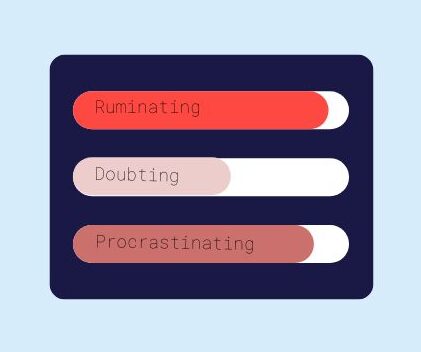Procrastination refers to intentionally, volitionally delaying or putting off tasks, activities, projects despite their importance and negative consequences in your day-to-day life.
These tasks could be related to work, school performance, daily living (laundry, cleaning), or other personal tasks such as calling the bank or scheduling an appointment.
Although procrastination may offer people a temporary break from an upcoming deadline, the consequences of procrastination are almost uniformly negative.
These consequences include missing deadlines, not completing necessary tasks, scrambling at the last minute to complete something with high levels of stress, and lower quality of work produced due to that stress
Often people who procrastinate make inaccurate predictions (under-estimation) of the amount of time needed to complete activities and prioritize fun or interesting tasks over more aversive or boring tasks.
Another driver of procrastination is the desire to complete a task to the best of the person’s ability, leading the person to wait until they are “ready” to complete it or avoid doing the task due to thoughts about not being good enough at the task.
For example, Charlie finds school work annoying and boring, he just does not see the point. When thinking about doing school work, he becomes annoyed and has thoughts such as “I can always work on it later” and continues engaging in activities that he enjoys, such as reading Manga or watching Youtube videos on his phone.
Due to this pattern, Charlie often finds himself scrambling to get assignments completed right before they are due, which is stressful for him and his parents, who often prompt him to start his homework sooner.







